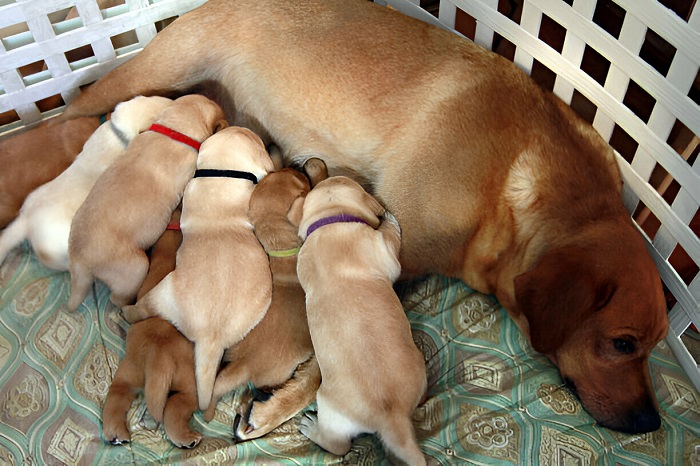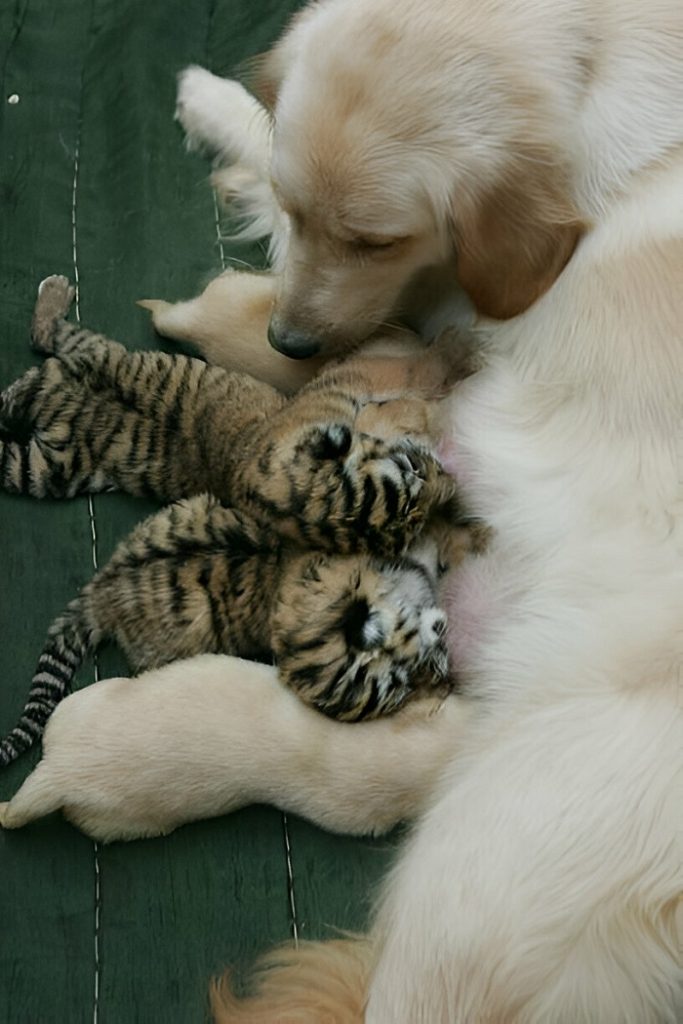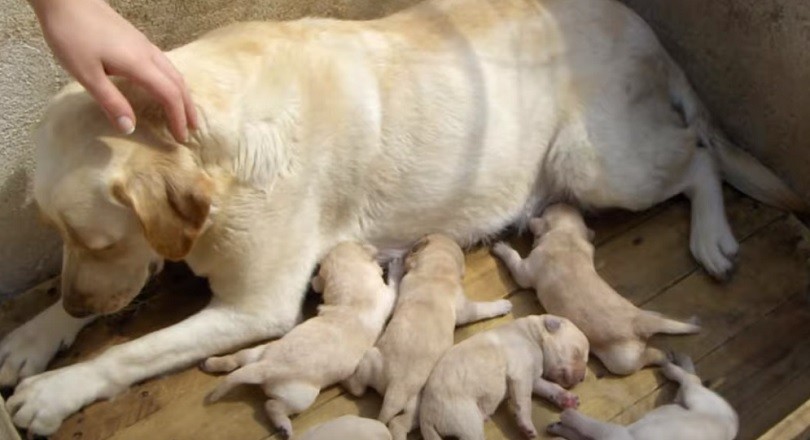Last Updated on February 28, 2025
Separate the mother dog from her puppies immediately. Consult a veterinarian for further advice and health checks.
Understanding why a mother dog might eat her puppies is crucial. This behavior can stem from stress, inexperience, or health issues. Ensure the mother dog is in a calm and safe environment. Provide her with adequate nutrition and hydration. Monitor her closely during and after the birthing process.
Always keep the whelping area clean and quiet. Proper socialization and gentle handling of the puppies can also help. Consult a veterinarian to rule out medical issues and get professional guidance. Early intervention is key to prevent this tragic behavior and ensure the well-being of both the mother and her puppies.
The Instinctual Behavior Of Maternal Canines

Maternal dogs have a strong instinct to protect and care for their puppies. However, in rare cases, maternal cannibalism can occur due to various triggers.
Triggers For Maternal Cannibalism
- Poor health of the mother or puppies
- Stressful environment or lack of privacy
- The presence of a perceived threat
Historical Context Of Puppy Predation
Throughout history, instances of maternal cannibalism in dogs have been observed, often linked to survival instincts in harsh conditions.
Preventive Measures For Dog Breeders
Ensuring the safety of puppies is crucial for dog breeders. Sometimes, a mother dog may eat her puppies. This behavior can be distressing. Fortunately, there are preventive measures that can help. Following these steps ensures the well-being of both the mother and her puppies.
Optimal Environmental Conditions
The environment plays a significant role in the behavior of the mother dog. Make sure the whelping area is calm and quiet. Too much noise can stress the mother dog. Stress can lead to harmful behaviors.
Keep the temperature warm but not too hot. Use a heating pad or a heat lamp if needed. The area should be clean and free of any hazards. A clean space reduces the risk of infection.
Provide a comfortable whelping box. The box should be large enough for the mother and her puppies. It should also have high sides to prevent the puppies from wandering away.
Dietary Considerations For Nursing Mothers
Proper nutrition is essential for a nursing mother dog. A well-fed dog is less likely to harm her puppies. Feed her a high-quality, balanced diet. This ensures she gets all the necessary nutrients.
Include foods rich in protein, calcium, and vitamins. These nutrients are vital for milk production. Consult your vet for the best dietary plan.
Ensure she has constant access to fresh water. Dehydration can cause stress and affect her behavior. Monitor her food intake and adjust as needed. A healthy mother is a happy mother.
| Food Type | Nutrient | Benefit |
|---|---|---|
| Chicken | Protein | Builds muscle |
| Yogurt | Calcium | Strengthens bones |
| Carrots | Vitamins | Boosts immunity |
By following these preventive measures, dog breeders can ensure a safe and healthy environment for mother dogs and their puppies.
Intervention Strategies For At-risk Litters
When a mother dog displays behaviors that threaten her puppies, immediate action is critical. Understanding and implementing intervention strategies can save the lives of the puppies. This section will guide you through essential steps.
Monitoring Mother And Puppies Post-birth
Keep a close watch on the mother and her puppies right after birth. Use a checklist to monitor:
- Mother’s behavior towards her puppies
- Puppies’ feeding patterns
- Any signs of aggression or neglect
Frequent checks help identify potential problems early. This allows for swift intervention. Use a camera if you can’t be there all the time.
| Observation | Action |
|---|---|
| Mother is restless | Provide a quiet space |
| Puppies are not feeding | Assist with feeding |
| Signs of aggression | Consider separating temporarily |
When To Separate Mother From Puppies
Separation should be a last resort but sometimes necessary. Consider separating if:
- Mother shows consistent aggression
- Puppies are at risk of harm
- Mother is ignoring the puppies
When separating, ensure puppies have a warm, safe space. Bottle-feed them regularly. Keep the mother nearby to reduce stress for both.
Reintroduce the mother slowly after things calm down. Monitor their interactions closely.

Frequently Asked Questions
Is It Normal For A Mother Dog To Eat Its Puppies?
No, it’s not normal for a mother dog to eat its puppies. This behavior can indicate stress, illness, or poor maternal instincts.
What Can I Do To Stop My Dog From Eating Her Puppies?
Ensure the mother dog is healthy and stress-free. Provide a safe, quiet space for her and the puppies. Supervise interactions and consult a vet for advice.
Why Is My Mom’s Dog Attacking Her Puppies?
Your mom dog might attack her puppies due to stress, lack of maternal instinct, or health issues. Ensure a calm environment. Consult a vet.
What Do You Do When A Mother Dog Won’t Feed Her Puppies?
Consult a vet immediately. Keep the puppies warm. Bottle-feed with a puppy formula. Monitor their health closely.
Why Do Mother Dogs Eat Their Puppies?
Mother dogs may eat their puppies due to stress, anxiety, or a lack of proper nutrition.
Conclusion
Ensuring your mother’s dog feels secure and stress-free can prevent her from harming her puppies. Provide a calm environment, proper nutrition, and regular veterinary check-ups. Understanding her behavior helps in taking the right steps. A little patience and care can make a big difference in keeping her puppies safe.

